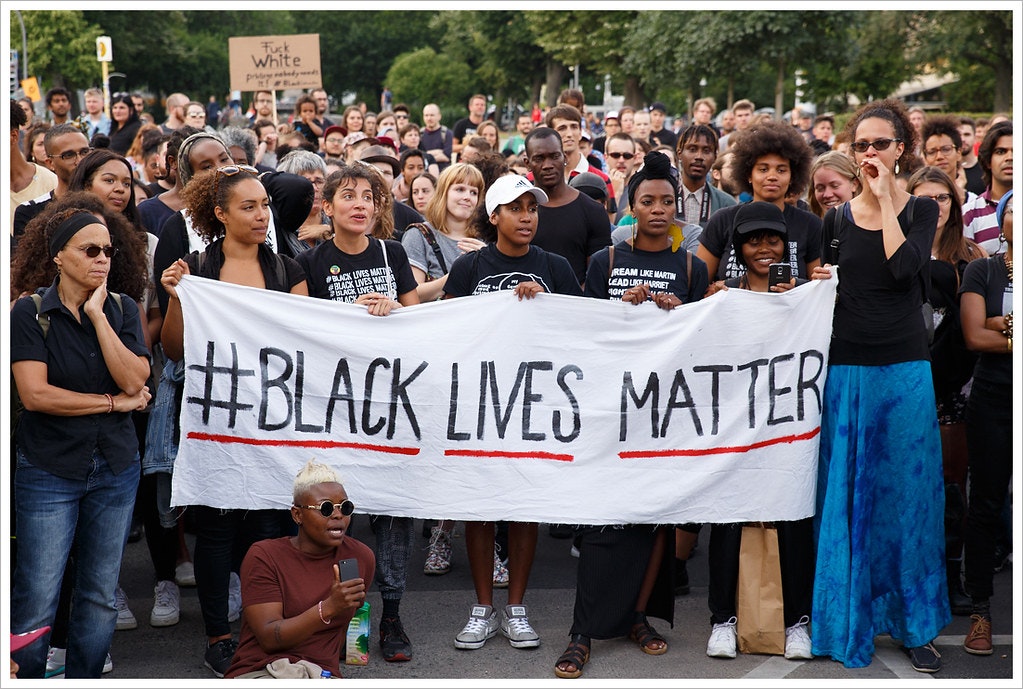Chief diversity officers (CDOs) and diversity and inclusion (D&I) leaders — and/or whatever other woke-sounding title you decide to give them — are pointless.
That statement might seem controversial coming from passionate inclusionists, but virtue signalling is nothing to clap for.
It’s all just virtue signalling
Whilst there’s a lot of good intention in appointing a person to the role of CDO, frankly, they don’t do enough to merit their lofty titles. As discriminatory behaviour and company policies are better researched and unapologetically exposed, CDOs have become a way for firms to appear like they’re doing the work without doing much of anything of long-term, measurable value.
CDOs have become a way for firms to appear like they’re doing the work without doing much of anything of long-term, measurable value.
As companies pay lip service to continued calls for greater diversity in the workplace and inclusion at all levels of seniority, the person expected to carry out this burdensome work (often a person of colour), becomes the ‘get-out-of-jail-free card’ when firms are called out for a lack of results.
Having a CDO absolves anyone in a real position of power from being accountable for diversity and inclusion within their role, team or department. Why think about it at all? They don’t want to step on the CDO’s toes now, do they?
CDOs don’t achieve results
Earlier this year, LinkedIn reported a 17% annual increase in the number of CDOs being employed in the US since 2015, according to its own data. In the 45 days after the start of Black Lives Matter protests, postings for such positions were up by nearly 100% compared to the 45 days prior.
To the unassuming, this would appear a good thing, but to the many people who have worked at companies where CDOs exist, the available data suggests companies are only marginally more diverse. Employee retention rates amongst minority staff are often still far below their often straight, white and male colleagues for instance and representation is still pitifully low at the leadership level. Ultimately, these are the metrics that count.
It seems many European CDOs are so ineffective they can’t even convince their organisations to track their performance data.
Tech is a data-driven industry, but it seems many European CDOs are so ineffective they can’t even convince their organisations to track their performance data. And if those companies do, the companies appear too embarrassed to make the data public. Take OakNorth, one of Europe's biggest ‘unicorns’, which seemingly operates within European diversity guidelines but doesn't publish how it’s doing on this front. Or have a look at Revolut and Darktrace: we couldn't find a single mention of the word diversity in any of their blog posts.
There’s scant public data available on the equality, diversity and inclusion effort in Europe, but anyone with a hint of melanin will probably say that from their experience that the scene here in Europe isn’t much better, if at all, than the US. Over there, at the big tech companies — the folks forced to publish how they’re doing — progress is still super slow. (The percentage of Facebook’s workforce who are black has crept up from 3% to 3.8% in the past six years.)
CDOs aren’t highly rated
Joint research from the non-profit Color in Tech and recruitment company Druthers Search found a 23% rise in the creation of job roles with ‘diversity’ in their titles in the year leading up to the report’s release in April 2019. Often these roles were a first for the company, the report noted.
However, what was very telling, is that Color in Tech reported that none of the UK’s 14 unicorn companies had yet employed someone working on diversity and inclusion full-time.
Things may have slightly changed now with the resurgence of Black Lives Matter this year, but when we look at many of the revered unicorns across Europe, we’re still yet to see a CDO. Neither Klarna, TransferWise nor new IPO unicorn, The Hut Group, have one.
This brings us to a border macro point. If these positions were so valued or integral to business success, then why don’t some of the most successful companies out there have them? That doesn’t mean those companies are excelling in diversity or inclusion — but they’re not noticeably doing worse than any of their peers.
The sad reality is CDOs are actually set up to fail
CDOs are supposed to be executive-level professionals but unlike their other C-Suite title peers, they don’t have a direct budget, a headcount and many don’t even report to the CEO. To add insult to injury, they don’t usually have the clout to truly affect the large corporations they’re working in. That requires time (and most CDOs only remain in this position for about three years), clear and realistic objectives, an equally passionate team, and backing from the CEO, who must be open to a top-down approach to effect institutional change.
Truthfully, many CEOs won’t be. Many won’t admit they find it difficult to comprehend and relate to the challenges of employees who aren’t white and male. This is the demographic of most major boardrooms and where diversity efforts are most needed.
Employing one lowly CDO won’t solve systemic racism, sexism or ableism.
CDOs aren’t superheroes — it’s about time we recognised that and became more critical of the system leading to these roles being created. Employing one lowly CDO won’t solve systemic racism, sexism or ableism. In fact, it can sometimes hamper progress when they’re blocked from carrying out the job they believed they’d be supported to do, and take a toll on their emotional wellbeing at the same time.
There’s not all too much published about the mental health of someone working in the diversity and inclusion space, but this Crescendo Work article sheds some light on the very real issue. Google searches and YouTube videos will show more people explaining the challenges and their experiences if you’re ready to listen. For anyone taking the CDO role, it’s a poisoned chalice.
A Wall Street Journal article headline read: ‘Demand for Chief Diversity Officers is high. So is turnover.” No surprise here. Why would anyone continue with a job if they achieve little, have no support and can find a better paying job somewhere else? It defies all logic. Until CDOs are valued enough to report to the CEO, be allocated a team and a decent sum of cash to do something tangible with, I’m loath to say that nothing will ever change. The role will continue like a merry-go-round going nowhere fast.
This secret columnist is a diversity and inclusion leader who has worked for multiple corporates and startups.



